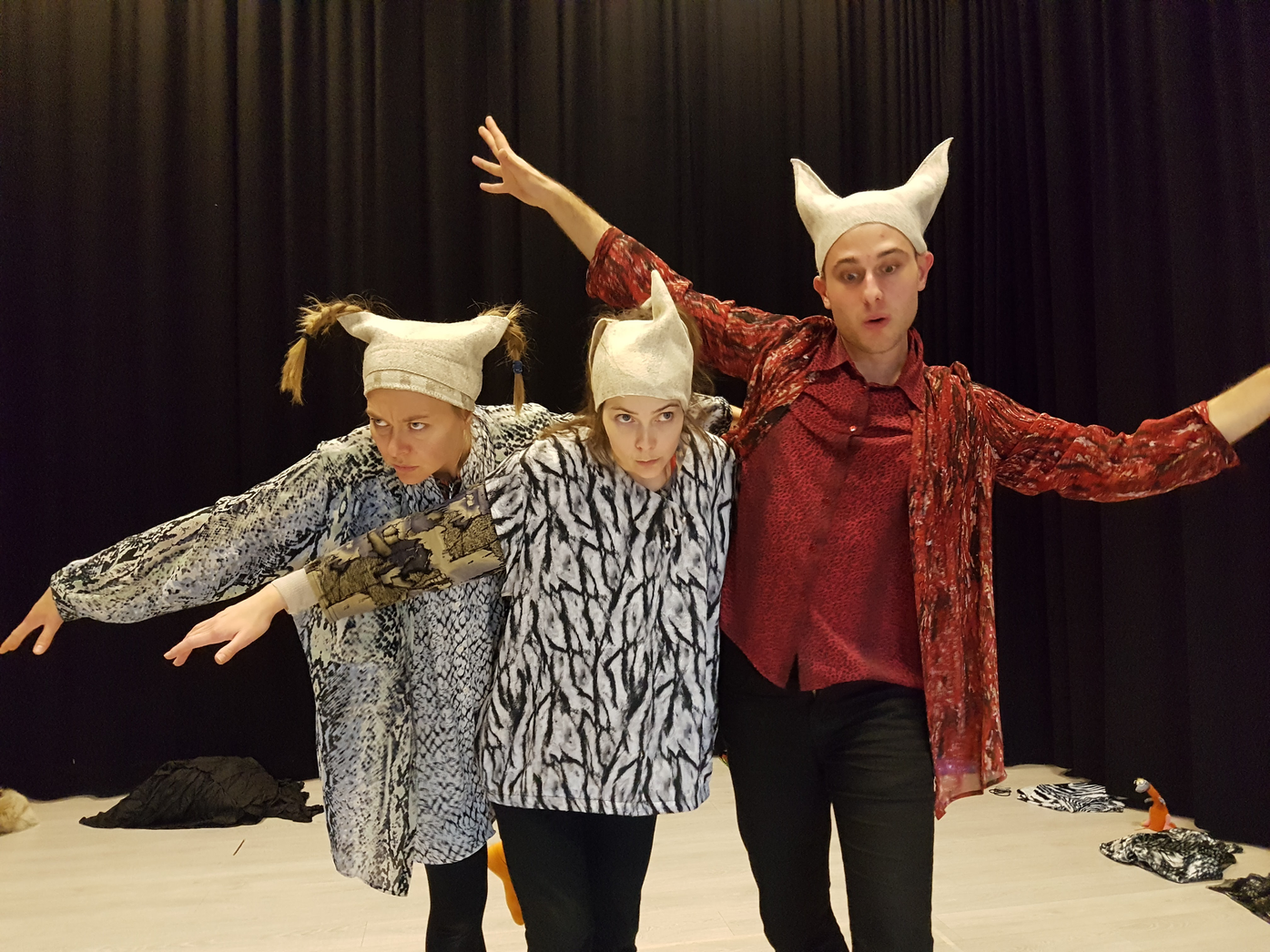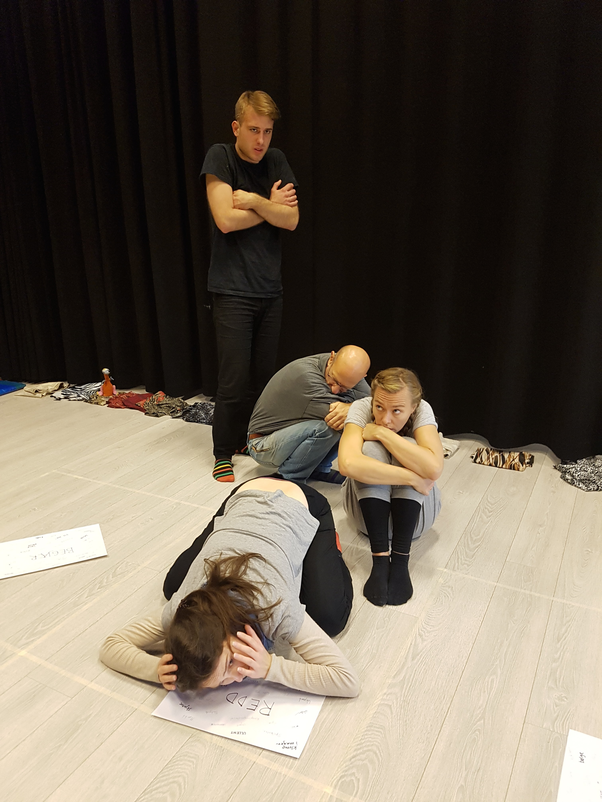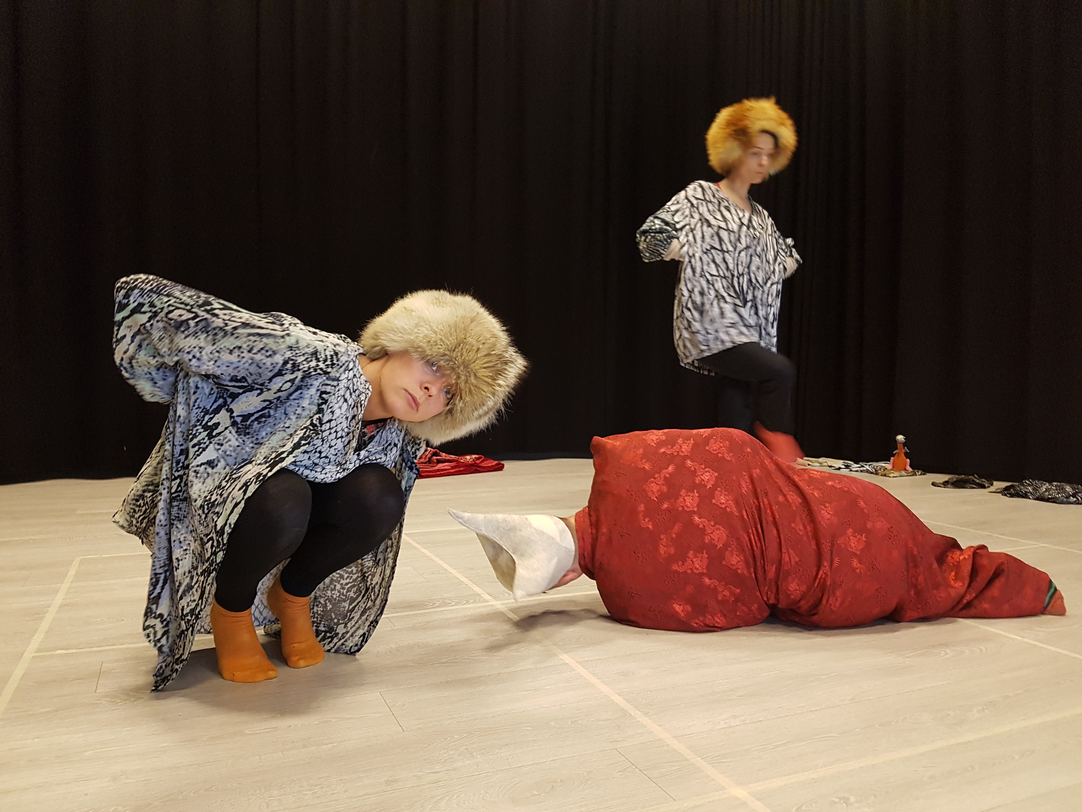Working with the exercises, we found new approaches to the affective languages of our project, and discovered how the emotions have a wide spectrum of shades and different expressions. Keeping on with the work over time the actors moved beyond the surface of the theatre masks, and begun to explore the subtle shades in between.
The Rasabox exercises are developed by Richard Schechner, and provides a method for working with the nine basic emotions or tastes in human life:
Sringara - Love/happiness
Karuna - Sadness
Raudra - Anger
Vira - Vigor
Adbhuta - Surprise
Bhayanaka - Fear
Bibhasta - Disgust
Hasya - Mirth/humour
Shanta - Peace
These are mentioned and described in the Sanskrit Hindu text Natyasastra on the performing arts from 200 BC.
To explore the costumes, and how they affected the playing, became a main entrance to the transformations of abstract life forms.
The plan for our residency at Seanse was to work with Rasabox exercises to explore the taste of different emotional states within a non psychological tradition of acting.
At the same time we would work with this to combine it, not with text, but with human/animal characters and transitions between abstract life forms and animal/humans.
We had five days, and very good working conditions in a theatre at the Høgskulen i Volda University College.
More on Rasaboxes and how we worked with it on this page.
At one point all three of the actors became gekkos, in a quite scary sequence ending up with eating each other in a cannibalistic orgy.
When presenting the scene for the other artists in residence, the tension between the gekkos was high and aggressive. It became obvious that we would have to adjust the expression for the youngest audience.











